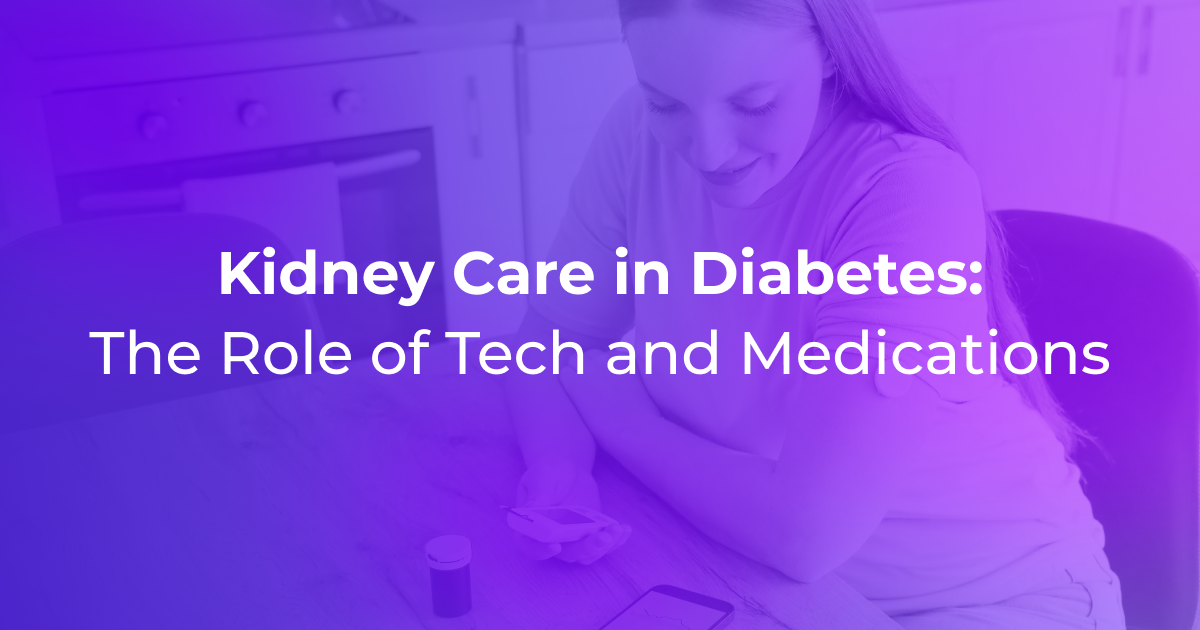Diabetes & Kidney Health: A Vital Connection
Understanding Your Kidneys
Your kidneys are two incredible organs that play a big role in keeping your body healthy. But what exactly do they do? Your kidneys are like a highly efficient cleaning crew for your body. Their main function is to filter your blood by removing waste and excess fluid, transforming it into urine. However, they do far more than just that. Here’s what else they are up to on a daily basis:
- Balancing Blood Sugar: They assist your pancreas in stabilizing blood sugar levels, especially important for those on specific diabetes medications.
- Managing Minerals: They maintain the balance of vital minerals such as sodium, potassium, and calcium in your blood.
- Supporting Blood Pressure: They contribute to healthy blood pressure maintenance, essential for overall health.
- Producing Red Blood Cells and Vitamin D: They regulate red blood cell production and generate vitamin D, supporting bone and blood health.
The kidneys do a lot for our body, which is why it is so important to keep them healthy.

The Link Between Kidney Health and Diabetes
For those with diabetes, maintaining kidney health is especially important. Diabetes can put extra stress on the kidneys, potentially leading to damage over time. Elevated blood sugar levels can harm the kidneys' delicate blood vessel network, hurting their ability to filter blood effectively. Additionally, high blood pressure, a common concern in diabetes, can also cause damage to the kidneys.
In addition to having diabetes, several other factors that can increase your risk of kidney disease, such as:
- Smoking
- Not adhering to a diabetes-friendly diet
- High salt intake
- Lack of physical activity
- Excess weight or obesity
- Existing heart disease
- A family history of kidney disease
- Certain ethnicities, including African American, American Indian, or Hispanic/Latino
Recognizing the importance of the kidneys and the things that can cause harm to them is vital for people with diabetes. Simply understanding these fundamentals is the first step in keeping them healthy.
What It Means to Have Kidney Disease
About 1 in 3 people with diabetes will develop kidney disease. But what exactly does having kidney disease mean? Simply, it means that your kidneys are no longer able to effectively clean your blood. This leads to a buildup of waste and toxins in your body, which can gradually make you sick. However, most individuals with kidney disease don't experience any symptoms. It's often called the "silent killer" because it can develop in your body without any noticeable signs. In fact, you can lose up to 60% of your kidney function before you notice any changes.
 Once kidneys are damaged, unfortunately, they cannot be healed to their original state. This reality narrows down treatment options significantly to either dialysis, a process where a machine takes over the job of filtering your blood, or a kidney transplant, which involves surgically replacing one or more of your kidneys with healthy ones to restore function.
Once kidneys are damaged, unfortunately, they cannot be healed to their original state. This reality narrows down treatment options significantly to either dialysis, a process where a machine takes over the job of filtering your blood, or a kidney transplant, which involves surgically replacing one or more of your kidneys with healthy ones to restore function.
*By submitting this form, you consent to receiving email communications from us. You have the option to unsubscribe at any time.
Be sure to also follow along on social media:
About Journey Biosciences
Journey Biosciences is on a mission to improve the lives of people with diabetes through proactive, personalized care. One in three people with diabetes faces the hidden threat of kidney disease. Our flagship solution, NaviDKD®, is an innovative blood test that identifies this risk years in advance, enabling personalized preventive care for better health outcomes. By empowering early action, we aim to significantly reduce the burden of diabetes-related kidney disease on patients and healthcare systems. Discover more at journeybio.life.
For media inquiries: media@journeybio.life




Taking a Proactive Approach to Kidney Health
While the reality of kidney disease can be scary, there are lots of proactive steps you can take to protect your kidneys and enhance your overall health. Throughout this month's blog series, we're going to delve into effective strategies for preventing kidney disease for those living with diabetes.
Stay tuned for our next posts, where we'll explore topics like regular screenings, lifestyle choices, and therapeutic interventions in detail, providing you with the knowledge and tools to take charge of your kidney health.
Key Takeaways
Don't Miss a Blog This Month!
Stay on top of your kidney health journey with us throughout National Kidney Month. Sign up for our newsletter below to get the latest blog posts straight to your inbox. We’ll be diving into practical strategies for preventing kidney disease, exploring regular screenings, lifestyle adjustments, and more to help you take charge of your kidney health.